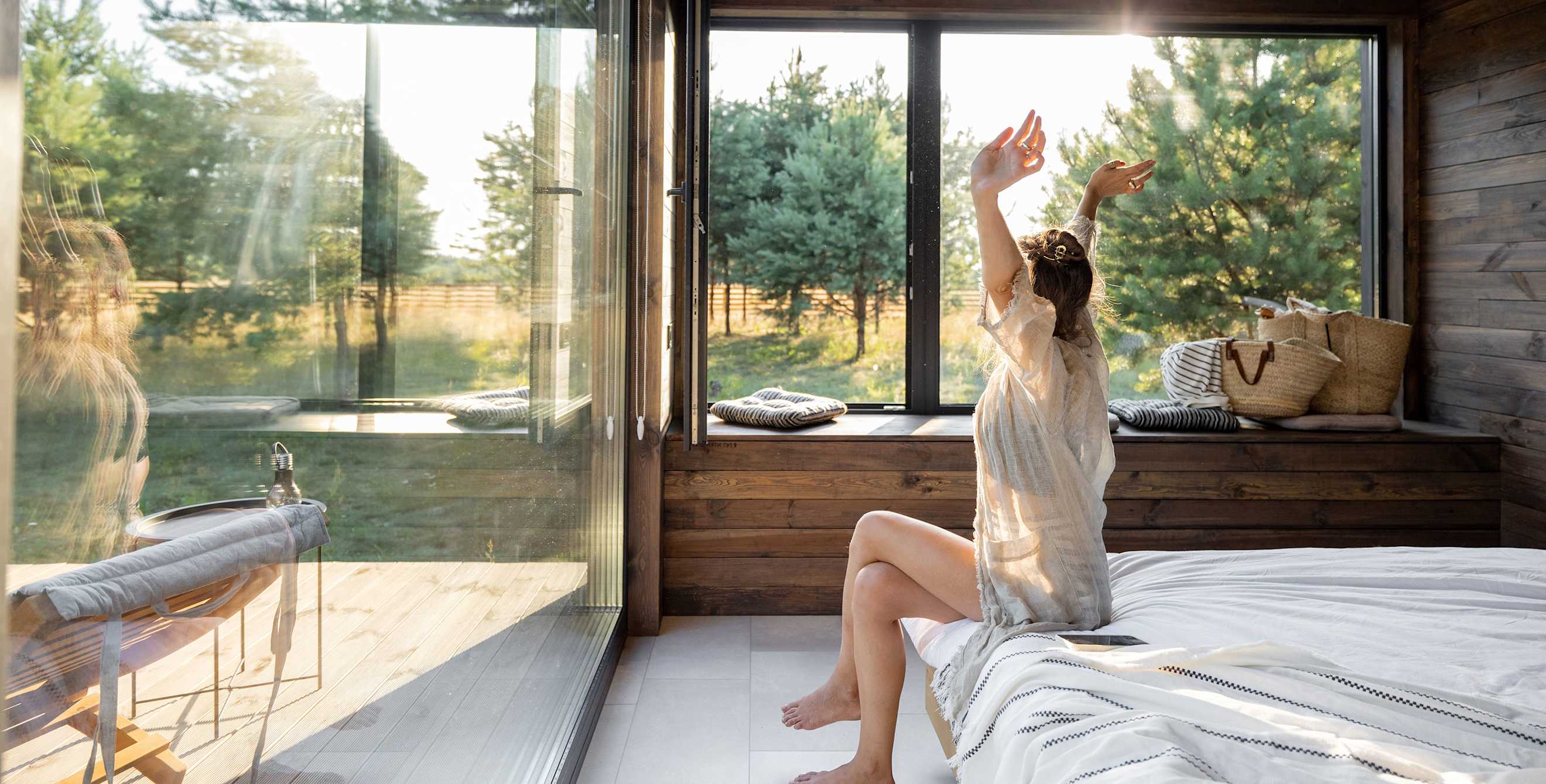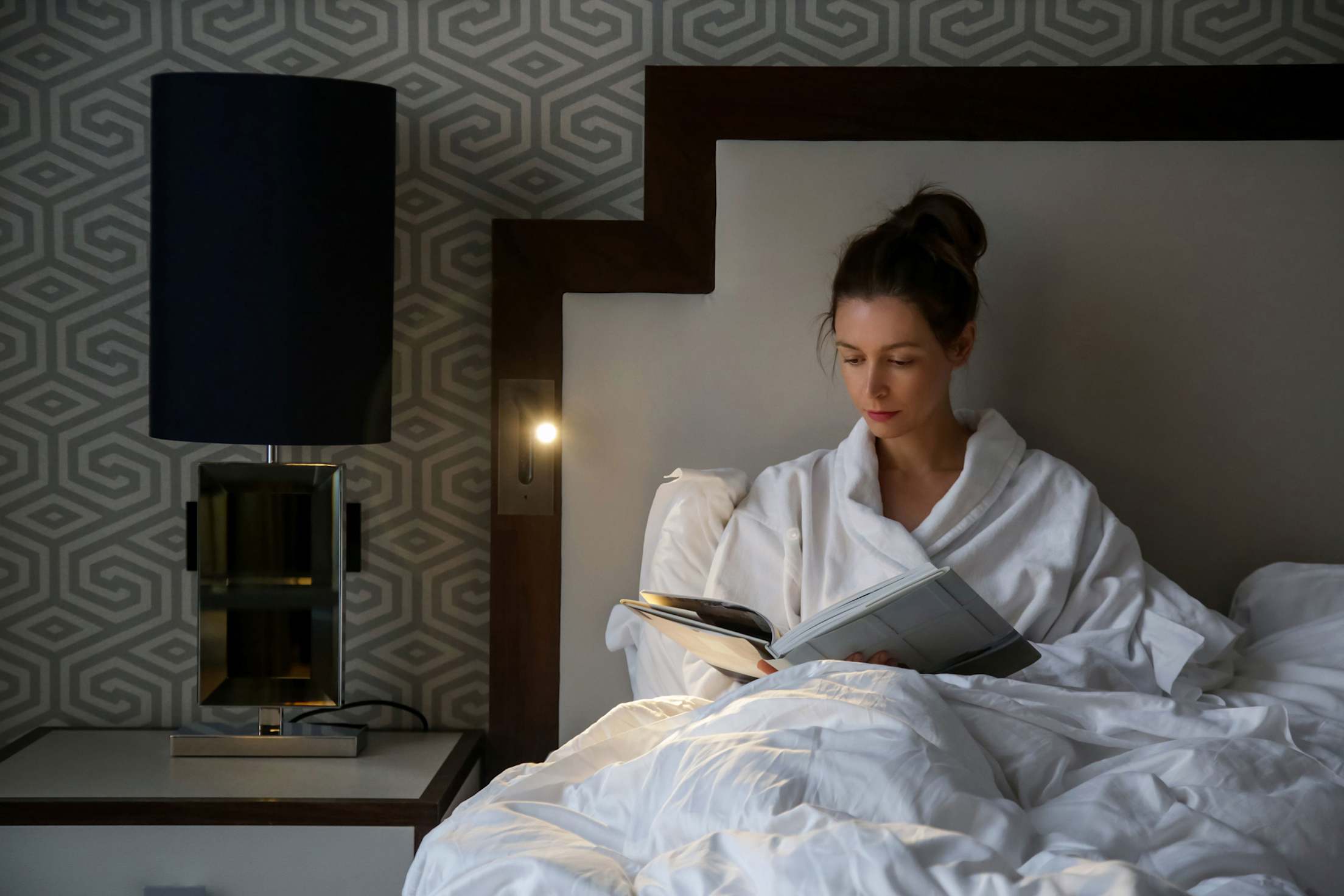
7 Tips to Sleep Better While Traveling
Make those z’s more restful to recharge for those on-the-road adventures.

For places designed to help travelers get some much-needed rest, hotel rooms and vacation rentals can be surprisingly difficult places to sleep: There aren’t enough pillows, the mattress is either too firm or too soft, and the temperature is never quite right. Once you finally do get to sleep, the sounds of late-arriving guests or little travelers running down the halls might make that rest, quite frankly, unrestful.
The good news is that you don’t have to sacrifice your z’s every time you hit the road. Here are a few ways to sleep better in your home away from home.
1. Block LEDs with electrical tape.
A dark environment is key to getting good sleep, and keeping a small roll of black electrical tape in your suitcase (and a pair of scissors to cut the tape) can help you block out any stray light. At bedtime, cut off small pieces from the roll and stick them over LEDs on the TV, landline phone, thermostat, alarm clock, and anywhere else displaying those annoying red lights. The tape can be removed the next morning—or at the end of your stay—without a trace.
2. Keep curtains shut with a pants hanger.
The secret to keeping those pesky hotel-room curtains closed at night can be found right in the closet: a trouser hanger. Turn the hanger on its side, then use the attached clips to cinch the window drapes closed, creating a darker sleeping environment. If you’re staying at a vacation home or budget hotel—any place that might not have pants hangers—stash a couple of big binder clips in your suitcase to do the trick.
Smart Tip: If light from the hall beams in from under your door, block it with a rolled-up towel from your bathroom.
3. Put on white noise.
Listening to white noise has been shown to help people drift off more quickly and get better sleep, helping to drown out the volume of noisy environments. YouTube, streaming music services, and meditation apps are filled with tracks of white noise (and other repetitive, relaxing sounds) you can play from your smartphone all night long. Or invest in a mini white noise machine to take on the go.
4. Adjust the thermostat.
The temperature of your sleeping environment can make a big difference in how well you sleep. According to the CDC, your bedroom temperature should be comfortably cool, somewhere between 65 and 68 degrees for most people. While you’re adjusting the thermostat, set the fan to remain on overnight, too. The relaxing, consistent sound of the fan can act like white noise and help you sleep soundly throughout the night.

5. Honor your pillow preferences.
Research shows that spending the night in a new environment forces your brain to be more vigilant, making it difficult to fall asleep. Make your hotel room or vacation rental feel more familiar by traveling with your own pillow from home. If you can’t squeeze a pillow into your suitcase, look for a hotel that offers a pillow menu. This amenity allows you to choose from a list of popular pillow options—such as goose down, memory foam, hypoallergenic, and microfiber—so your bed can match your personal preferences and feel a little more like home.
6. Spritz your hotel room with essential oils.
Pack a travel-size bottle of lavender aromatherapy mist in your toiletry bag on your next trip. Researchers have found that this specific scent can help counteract insomnia and other sleep problems. Before bed, lightly spritz your room and pillow, and let the floral fragrance help prepare you for slumber. Not into lavender? Try peppermint instead. One study found the fresh scent was just as effective as its floral counterpart at improving sleep quality.
7. Stick to your routine.
Maintaining your usual bedtime routine while traveling can increase the chances of getting sound sleep. When traveling within your own time zone, try to hit the hay at the same time you do when you’re home. No matter which time zone you travel to, if you usually read before bed, bring your favorite book to help you wind down. Avoid TVs, smartphones, and other electronic devices in the two to three hours leading up to bedtime—as we know, the blue light emitted from these can disrupt your circadian rhythm. And when you wake up (at your usual time preferably), get some sunshine within the first hour of your day. This helps keep that circadian clock on track which will eventually help you get to sleep more easily that evening, so you won’t endure a night of tossing and turning on your vacation.
Members save up to 20% off hotel rates.